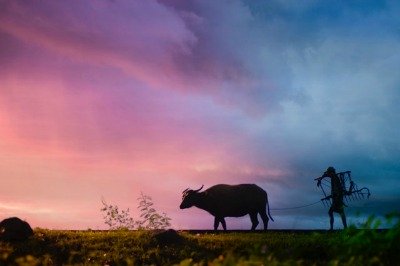Starting a farm that is plant-based sounds easy, but it is not and should not be so presumed.
Whether there is already existing farmland or one still needs to be found, farming should be well planned.
A general plan, ideally including a feasibility study, has to be prepared first taking into consideration all factors that may affect the profitability or sustainability of the undertaking.

Otherwise, huge losses may be incurred.
Unfortunately, a farm cannot just be replaced or otherwise modified because a mistake was committed in its selection.
The same is true for crops, especially perennial crops when already established.
With the high-density planting of fruit trees, the farmer must condition his ailing heart for that eventuality when the plant population has to be reduced.
This operation, called thinning, involves the cutting of excess trees in order to widen the distances between the remaining trees.
The cutting of trees may also become a reasonable resort when it is finally realized that the market for the product has become lame.
Likewise, the same may become necessary when it is decided that the landscape design has to be changed.
Three Important Premises to Consider
There are three important premises that will affect planning preparatory to actually start a farm:
First, there is no preexisting or preselected farm and no crop has been selected for growing but you want to buy a farm and engage in farming.
Second, the farm is already available.
Third, the crop to be grown has been decided but a suitable farm has yet to be found.
All these will have to consider either crop selection or site selection or both.
Various Factors Before Actually Starting a Farm
I would consider various factors before actually starting a farm.
First, know what you want.
Whether or not there is preexisting farmland, the purpose of going into farming must be identified.
What exactly are your ultimate aims in developing a farm?
For little cash and subsistence, as a showcase of your farming skills and ingenuity, as a form of self-employment with a meager profit, or as a business venture?
As a place to spend a vacation? As a permanent residence or refuge from the polluted and chaotic city life?
Or as a component of a grander plan such as engaging in fruit processing or in agri-tourism inspired hotel and restaurant business?
Whatsoever, it will affect the choice of location and the site and size of the farm as well as the choice of crops and the planting layout.
For example, an agri-tourism business establishment should be relatively large and located preferably where it is visible and easily accessible to the public.
A natural attraction and a pond for fish culture and aquatic plants will be a huge bonus.
Here the likely crop candidates are the shade trees, fruit trees, and ornamental plants.
Unique landscape architecture also needs to be designed.
Knowing what you want before actually starting a farm will save the trouble of feeling frustrated because of errors in either crop or site selection.
Next in line should be a thorough evaluation of the various factors necessary in order to come up with an informed decision as to the choice of crop or crops and the farm location and specific site.

Is not easy to start a business or a farm. First two things you need to ask what I want to farm with and where you want to farm /erea. One should not be hasty in developing or buy a farm. Factors to be considered community should be undertaken otherwise, huge losses may be incurred. Knowing what you want before actually starting a farm.
THANKS FOR THE INFORMATION. THE INFORMATION IS VERY HELPFULL AND I FIND IT QUITE INTERESTING.
I learn so much about the planning and other things that must be needed before starting a business.
It is so exiting to learn about these things.
It is so exiting.
Find it very interesting.
I am interested in poultry farming. I thinking can make it in that field. The information provided above confirms i amin the right direction.